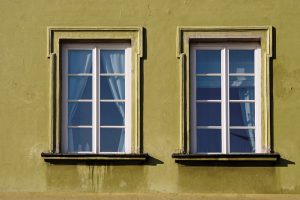 There are basically two main types of timber – softwood or hardwood.
There are basically two main types of timber – softwood or hardwood.
The terms softwood and hardwood can be a bit misleading since some softwoods are hard and some hardwoods are soft. Balsa wood is a deciduous angiosperm and is classified as hardwood even though the wood itself is quite soft. The most important thing to keep in mind is both of these kinds of woods have unique properties that are suited to a home’s different needs. The differences between softwoods and hardwoods are based on their cellular structure.
The softwood and hardwood terminology does make sense. After all, evergreens tend to be less dense compared to a deciduous tree which makes it easier to cut. On the other hand, most hardwoods are more difficult to cut because they are so dense. So as the balsa wood classification shows, there are no minimum weight requirements for being a hardwood.
Our manufacturer for KJM Group has various types of woods that are available.
Sapele-Type Hardwood
Sapele is the most popular option offered by KJM. It is a durable, stable, and strong tropical hardwood that is well-suited for joinery manufacture. This timber is sourced from Cameroon and West Africa and classified as being moderately durable with a durability rating of Class 3 to 4. It is quite attractive, due to its dark reddish-brown appearance, and well-suited to use as a transparent coating.
Benefits
- Over 50 per cent of our purchases of sapele is Verified Progress from our manufacturer.
- Density/hardness is 640 kg/m2. (In contrast, European Oak is 720 kg/m2 and European Redwood is 510 kg/m2.)
- Preservation treatment is not required since the lack of permeability of the species means it is resistant to treatment.Suited to: Properties within conservation areas, heritage properties.
Oak-Type Hardwood
Oak has been the traditional material choice for timber windows and has been used in window construction for hundreds of years. It is a hardwood with amazing strength and durability and well-suited for heavy uses and when properly maintained can last for a lifetime. Also, oak timber windows have amazing aesthetics, due to the grain of each tree. It is the perfect, traditional option.
Benefits
- Traditional, authentic option for windows.
- Long-lasting.
- Very durable and strong.
- Beautiful woodgrain effects that provide a striking heritage aesthetic.Suited to: Traditional aesthetic homes, properties within conversation areas, heritage properties.
Redwood-Type Softwood
There is a reduced moisture uptake in redwood timer that helps to extend the working lifespan of the window and improve weatherproofing. It makes it well suited for use in many different settings.
Redwood timber windows are ideal to provide a property with an added touch of traditional charm, without modern aesthetics being compromised.
Benefits
- Modern, subtle aesthetic.
- Reduced moisture uptake prolongs the lifespan.
- Outstanding durability and dimension stability.
Suited to: new builds, modern-look properties.
Accoya-Type Softwood
Accoya wood is a type of specially treated softwood with amazing properties. Accoya is treated using an acetylation non-toxic treatment process, which changes the timber’s cellular structure and enhances its performance. The lifespan of Accoya wood is estimated at 60 years, and it has outstanding weatherproofing, aesthetic, and thermal performance properties. It is even able to repel insects and is sourced sustainably. Accoya wood windows are well-suited for both modern and traditional properties. Our Accoya page has a video presentation and additional information on this timber.
Benefits
- It is less likely for products made out of Accoya wood to distort.
- Factory-applied coatings last longer on Accoya.
- Compared to hardwoods, Accoya is a 40 per cent more effective insulator.
- Incredibly durable with a 60 year or longer working lifespan.